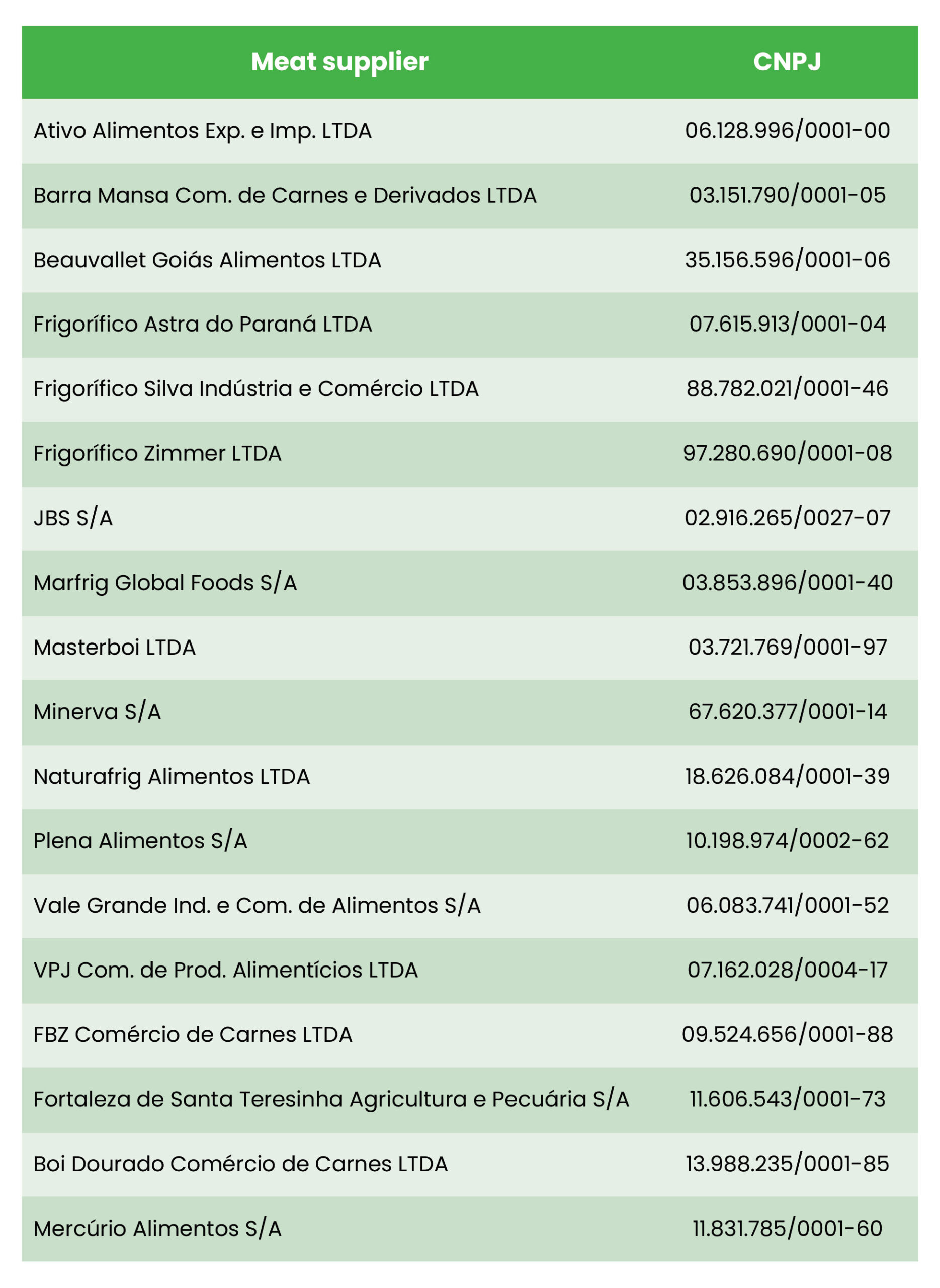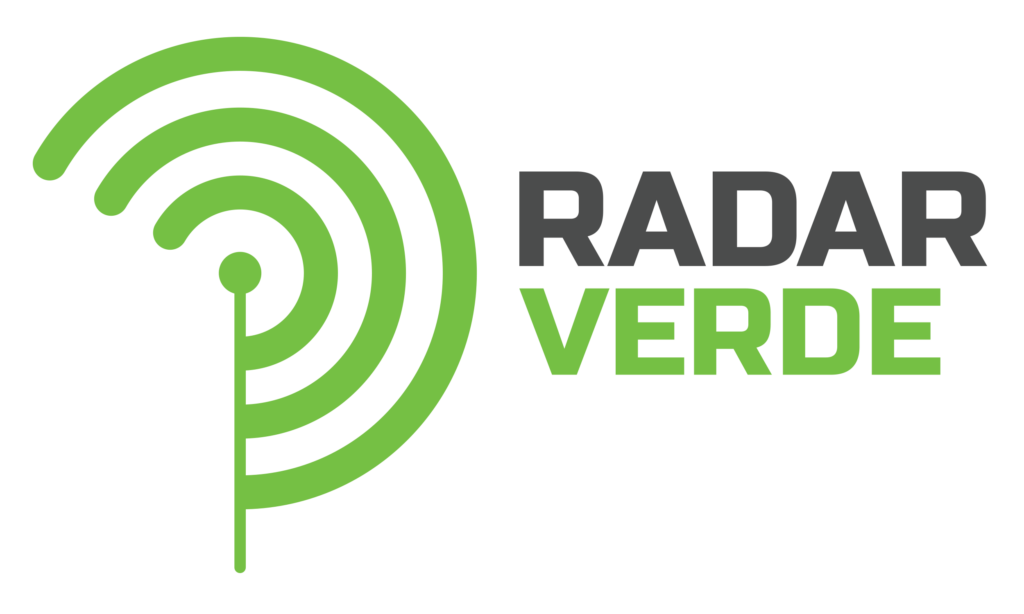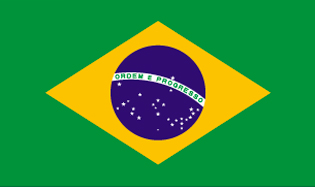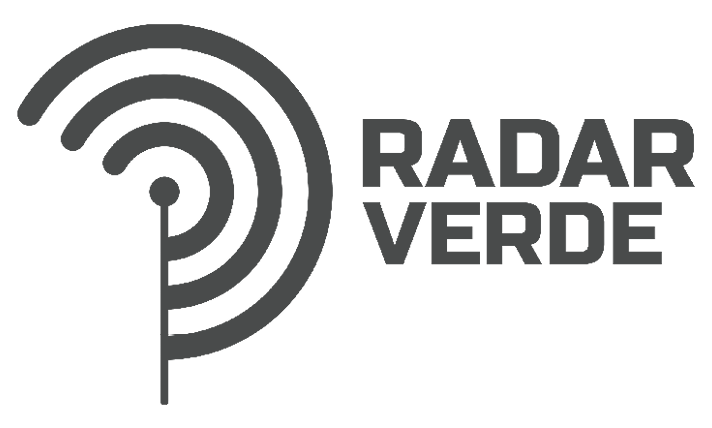Meatpackers
Radar Verde is committed to highlighting the good practices adopted by companies that, although they have not yet achieved the maximum score in the indicator, declare that they adopt good practices aimed at controlling their supply chain.
- Fortefrigo
Fortefrigo maintains the Canal do Pecuarista (Cattle Rancher Channel) on its official website, a space that brings together simplified information on responsible cattle purchasing. Additionally, it offers the Pecuarista de Plantão (Cattle Rancher on Call) project, which aims to provide technical assistance to cattle suppliers through Consultoria Verde (Green Consulting). On this channel, cattle ranchers can clarify doubts on topics such as environmental regulation, animal welfare, and sustainable livestock management.
Source: Company website, 2025.
- JBS
JBS maintains the Escritórios Verdes (Green Offices) program, focused on providing technical support to direct suppliers of fat cattle who wish to join the Plataforma Pecuária Transparente (Transparent Livestock Platform). This platform allows cattle farms to evaluate their suppliers (such as calf and lean cattle breeders) based on anti-deforestation criteria required by the market.
The program also offers technical assistance for the environmental regularization of farms. Currently, there are 20 Green Offices located in eight states: Acre (1), Goiás (1), Mato Grosso (6), Mato Grosso do Sul (2), Minas Gerais (1), Pará (4), Rondônia (4), and Tocantins (1).
Source: Company website, 2025.
- Masterboi
The company has developed the Green Alliance Project, which focuses on retraining, socio-environmental education, and the regularization of direct and indirect cattle suppliers. The project aligns with the best practices of the Boi na Linha Protocol and the Indirect Supplier Working Group (GTFI), aiming to achieve more sustainable cattle farming.
Source: Company website, 2025.
- Rio Maria
Frigorífico Rio Maria operates the Individual Traceability and Indirect Monitoring Program (PRIMI), a voluntary system for ranchers that enables cattle to be tracked from the early stages of development through to delivery to the slaughterhouse. Monitoring is done through individual ear tagging of cattle. According to the company, by 2024 more than 40,000 cattle had been tagged, including more than 8,000 since birth. The program accounts for 120,000 earrings that have been purchased. The company also states that it participates in sectoral, commercial, and public initiatives that encourage new cattle ranchers to join PRIMI, to achieve 100% traceability of indirect suppliers.
Source: Company website, 2025.
Retailers
- Assaí
The company has a Social and Environmental Policy for Beef Purchases, updated between 2023 and 2024. It requires its suppliers to have the Federal Inspection Seal (SIF), the use of traceability and geomonitoring tools, the signing of social and environmental commitments—such as the social and ecological commitment agreement that recognizes the prohibition of purchasing cattle from areas with illegal deforestation, indigenous lands, conservation units, embargoed areas, or farms involved in slave labor—in addition to the automatic blocking of non-compliant suppliers.
Source: Company Sustainability Report, 2024. Available at: Annual and Sustainability Report 2024 | Assaí Atacadista
- Carrefour
Since 2010, with the latest update in 2024, the Carrefour Brasil Group has had a Beef Purchasing Policy in place to ensure that the meat sold does not originate from farms that engage in illegal deforestation. The company states that it requires its meatpacking suppliers to comply with socio-environmental criteria, such as adherence to specific protocols for the Amazon and Cerrado biomes, including: signing Conduct Adjustment Agreements (TAC); supplying meat and by-products from plants with SIF; use of geomonitoring and socio-environmental analysis tools; and supply only from farms with active Rural Environmental Registration (CAR) and valid environmental licenses. The group also indicates that it requires meatpacking suppliers to send information on the origin of the farms and authorize compliance re-analyses. After approval, suppliers undergo periodic re-evaluations. Those that do not meet the approval criteria or fail to comply with due diligence requirements are blocked.
In addition, the retailer Carrefour is part of coalitions and multisectoral working groups focused on promoting a more sustainable chain, such as the Brazilian Sustainable Livestock Roundtable (MBPS), the Consumer Goods Forum (CGF) Beef Working Group, where it acts as co-chair, the Brazil Climate, Forests, and Agriculture Coalition, and is a signatory to the Boi na Linha Protocol.
Another aspect of transparency implemented by the company is the availability of a list of its meatpacking suppliers (Table 12).
Table 12. Meatpackers identified in Carrefour’s supply chain

Source: Carrefour Brazil Group. Plataforma de Transparência da Carne e Relatório Anual de Sustentabilidade 2024
- GPA (Grupo Pão de Açúcar)
Since 2016, GPA has maintained a Social and Environmental Policy for Beef Purchases that requires meatpacking suppliers to ensure the traceability of meat origin, adhere to protocols such as the Boi na Linha initiative, register with the Federal Inspection System (SIF), and block suppliers in case of non-compliance. The company also states that it maintains dialogue with suppliers to promote sustainable practices and seeks to reduce emissions in its operations.
Source: Company website, 2025. Available at: Annual Sustainability Reports – GPA RI






